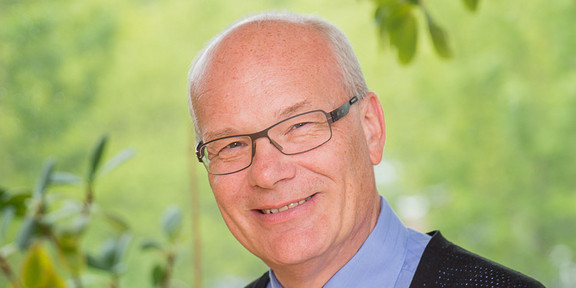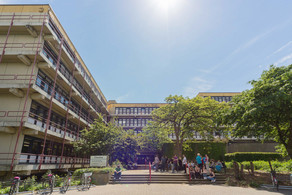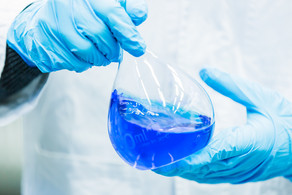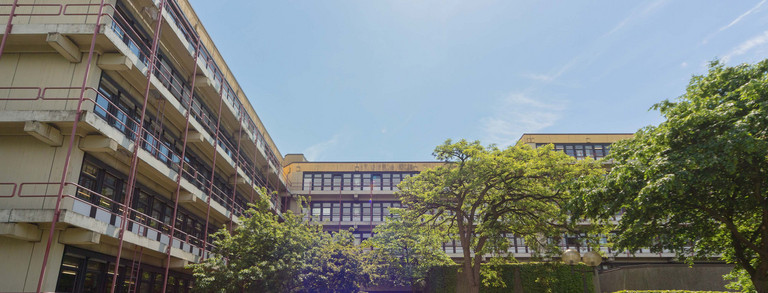Archiv 2022
Herbert Waldmann für bahnbrechenden Beitrag zur Chemischen Biologie ausgezeichnet
- Neues aus der Fakultät 2022
- Neues aus der Fakultät

Herbert Waldmann ist ein führender Protagonist auf dem Gebiet der Chemischen Biologie. An der Schnittstelle zwischen Biologie und Chemie kombiniert er Methoden beider Disziplinen und setzt Molekülsonden als leistungsfähige Werkzeuge zur Erforschung biologischer Phänomene ein. Ein Schwerpunkt der Forschungsarbeit liegt auf der Herstellung und Untersuchung von Peptid- und Proteinverbindungen, die lebenswichtige biologische Prozesse wie die Weiterleitung von Wachstumssignalen oder den Transport von Biomolekülen in der Zelle kontrollieren und somit eine Schlüsselrolle bei neurodegenerativen Erkrankungen oder der Entstehung von Krebs einnehmen. Herbert Waldmanns Forschung ist zutiefst interdisziplinär und umfasst auch einflussreiche Artikel über zellbasiertes Screening, aktivitätsbasierte Proteinprofilierung und chemische Proteomik, Genetik und biophysikalische Methoden.
Seit seiner Berufung zum Direktor an das MPI für molekulare Physiologie und als Lehrstuhlinhaber für Organische Chemie an die TU Dortmund im Jahr 1999 hat Waldmann maßgeblich dazu beigetragen, den Standort Dortmund zu einem international sichtbaren Zentrum für Chemische Biologie zu entwickeln. Er ist Initiator des 2005 gegründeten Chemical Genomics Centers, das die Max-Planck-Gesellschaft zusammen mit forschenden Pharmaunternehmen in Dortmund betreibt. Als Autor hat Herbert Waldmann bislang weit über 500 Artikel in renommierten Fachzeitschriften publiziert. Für seine Arbeit auf dem Gebiet der Chemischen Biologie wurde er mit zahlreichen Preisen und Ehrungen ausgezeichnet, wie z. B. mit dem Otto-Bayer-Preis, mit der Emil-Fischer Medaille der Gesellschaft Deutscher Chemiker (GDCh) und mit der Ehrendoktorwürde der niederländischen Universität Leiden.
Der "Nauta Pharmacochemistry Award for Medicinal Chemistry and Chemical Biology" wurde zum Gedenken an Prof. Dr. W. Th. Nauta gestiftet. Seine Aktivitäten haben die Medizinische Chemie und die Chemische Biologie gefördert und haben zur Entwicklung internationaler Organisationsstrukturen für diese Disziplinen beigetragen.
Mit dem Nauta-Preis werden herausragende wissenschaftliche Forschungsergebnisse auf dem Gebiet der medizinischen Chemie und der chemischen Biologie von Forschenden ohne Einschränkung der Nationalität gewürdigt. Der Preis wird alle zwei Jahre von der „European Federation For Medicinal Chemistry and Chemical Biology“ (EFMC) verliehen und ist mit 7.500 Euro dotiert. Zudem werden die PreisträgerInnen eingeladen, einen Vortrag auf einem „EFMC-International Symposium on Medicinal Chemistry“ zu halten
https://www.efmc.info/award-medicinal-chemistry-chemical-biology-nauta-pharmacochemistry
English Version:
The European Federation for Medicinal Chemistry and Chemical Biology has awarded Prof. Dr. Dr. h.c. Herbert Waldmann, Director at the Max Planck Institute of Molecular Physiology in Dortmund, the "Nauta Pharmacochemistry Award for Medicinal Chemistry and Chemical Biology” for his pioneering work in this field. With the development of a broad range of groundbreaking concepts he has laid the foundation of chemical biology as a discipline and promoted Europe’s scientific community through numerous interdisciplinary partnerships across academia and industry.
Herbert Waldmann is a leading protagonist in the field of chemical biology. At the interface between biology and chemistry, he combines methods from both disciplines and uses molecular probes as powerful tools for investigating biological phenomena. One focus of his research is the synthesis and investigation of peptide and protein compounds that control essential biological processes such as the transmission of growth signals or the transport of biomolecules in the cell and thus play a key role in neurodegenerative diseases or the development of cancer. Herbert Waldmann’s research is deeply interdisciplinary and further includes influential articles covering cell-based screening, activity-based protein profiling and chemical proteomics, genetics, and biophysics methodologies.
Since his appointment as Director at the MPI of Molecular Physiology and as Chair of Organic Chemistry at the TU Dortmund in 1999, Waldmann has contributed significantly to the development of Dortmund as a internationally renowned centre for chemical biology. He is the initiator of the Chemical Genomics Centre founded in 2005 in Dortmund, which the Max Planck Society runs together with research-driven pharmaceutical companies. As an author, Herbert Waldmann has published over 500 articles in renowned scientific journals, so far. For his work in the field of chemical biology, he has been awarded numerous prizes and honors, such as the Otto Bayer Prize, the Emil Fischer Medal of the German Chemical Society Chemists (GDCh) and an Honorary Doctorate from Leiden University in the Netherlands.
The "Nauta Pharmacochemistry Award for Medicinal Chemistry and Chemical Biology" was established to honour the memory of Prof. Dr. W. Th. Nauta, whose activities have been very important for the advancement of medicinal chemistry and chemical biology in general, and the development of international organisational structures for these disciplines.
The Nauta Award will acknowledge outstanding results of scientific research in the field of medicinal chemistry and chemical biology obtained by scientists without restriction regarding nationality. The award is given biennially and is endowed with € 7.500 Euro. The awardees are invited to give a lecture at an "EFMC-International Symposium on Medicinal Chemistry".






